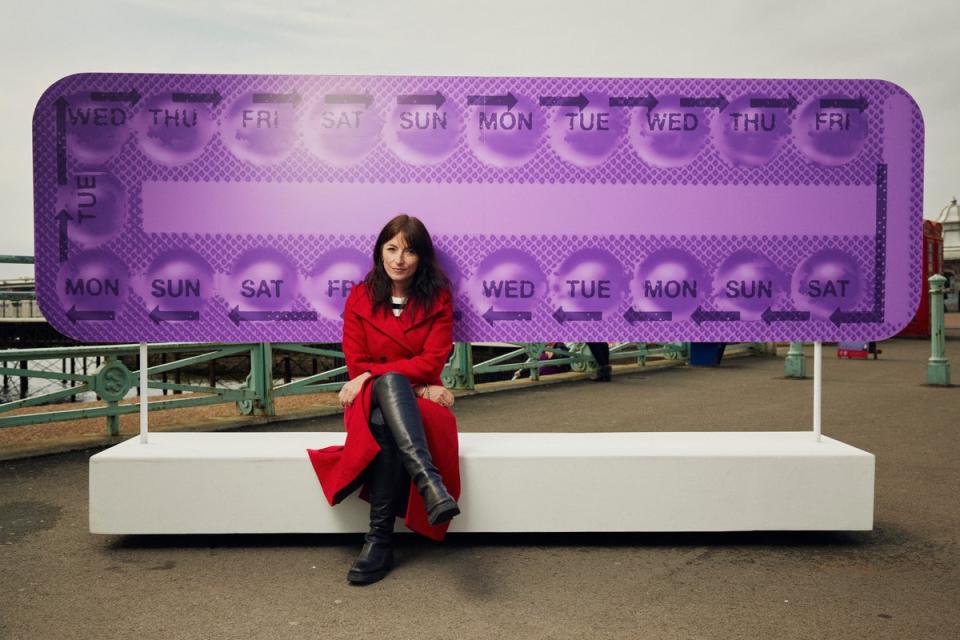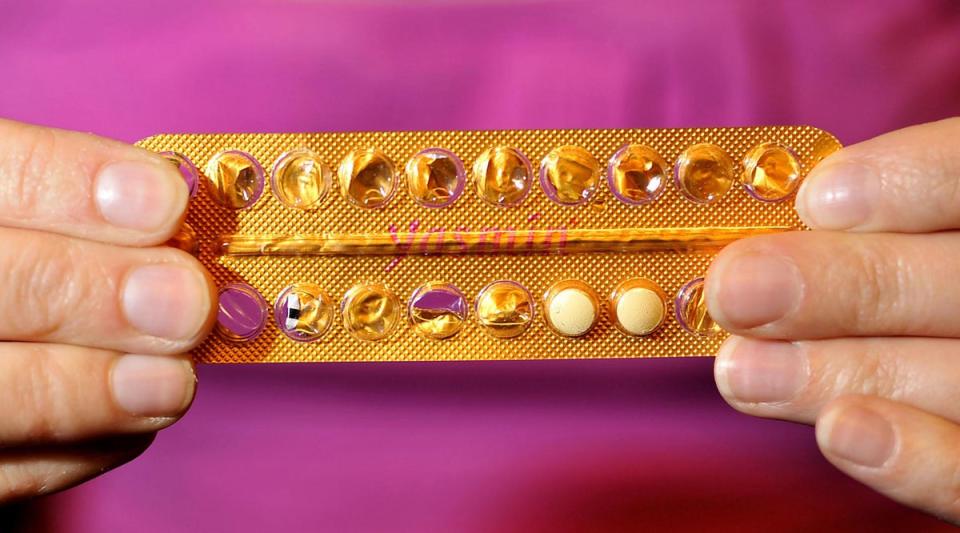Women’s access to contraception has never been worse, says Davina McCall as her new documentary airs

Women are facing a “black hole” in funding for contraception-based research, according to a new Channel 4 documentary.
Titled Davina McCall’s Pill Revolution, the show sees McCall follow up her successful documentary on the menopause by examining British women’s access to and relationship with contraception.
Over the course of the show, McCall – and a series of experts – explain how a lack of funding and research has made women strangers to the hormones they’re putting inside their bodies.
“Sadly, there is so little research done into women’s health, and it means that we’re scrabbling around for science-based evidence to do with contraception,” McCall explains during the show.
“It makes me angry because [women] deserve better. Better research. Better knowledge. Better quality of care. More funding. And why should we compromise our quality of life to prevent pregnancy? This is a conversation we have to have.”
The few statistics that do exist are alarming. A survey of 4,000 women carried out for the documentary showed that 77 per cent of women experienced side effects that included headaches, depression and mood swings. Of those, a third stopped taking it.
Freedom of information requests conducted for Pill Revolution also showed that in some parts of the country, women are taking over a year to get a coil fitted – while at the same time, the rate of abortion in women over 35 has increased significantly.
Over the course of the hour-long show, McCall talks to young women about their experiences on the pill, chats with charities dedicated to improving awareness of different contraceptive methods and talks openly about her own experiences of using it.
She even takes the step of getting her Mirena contraceptive coil changed live on air, by leading gynaecologist Dame Lesley Regan.

“I wanted to do it to try and take the fear out of it,” she told a crowd at a screening last week. “Most people say to me, ‘Look, I’m absolutely terrified’… you don’t hear the good stories. Lots of women have coils fitted and it’s great. And well, not great. But it’s okay.”
Regan, who was also present at the screening, also drew attention to the fact that contraception, despite having myriad benefits, is actually harder to get hold of than ever due to NHS budgets being cut and lengthy GP waiting times.
“This is a fact: contraception is the single most cost-effective intervention in healthcare. And there’s nobody in the heart world or the lung world or the vaccine world that would disagree with that,” she said.
“So you could create more good from allowing women to select if and when, and how many times and with whom they choose or choose not to get pregnant, than with any other health intervention.”
Contraception is not only used for preventing pregnancy: it helps regulate hormone use, manage menopausal symptoms, and is used by women between the ages of ten (which is often when puberty starts) and 50.
However, the subject remains very much taboo in mainstream media and even among women – something that McCall hopes the documentary will change.
“We have to be very, very careful that we don’t go down the American route, where that we are more and more marginalised as sexual beings, because that would be a terrible thing,” McCall said.

“Denying us access to contraception is a really huge part of that. And the idea that it is harder now to access contraception than it was 10, 20 years ago is obscene. That is really terrible.”
Talking to the panel – which included Alice Pelton, founder of contraception information charity The Lowdown, Regan and Simphiwe Sesane, a Contraception and Sexual Health Nurse Consultant – McCall discussed the need for better education at school level.
“We’ve got a massive number of adolescents. And we don’t give them the tools they need to embark on life, particularly the women,” Regan said. “We need to make sure that girls understand about having menstrual periods and boys understand that every girl that they know, and their mum and their sister, are also going to have them. Then everything flows from that.”
Regan added that she was currently in the process of “urgently” setting up a review group with the Department of Education, aimed at reviewing sex education in schools.
“It’s going to take a long time, like everything else, to get a change. But I’m sure this is the right way to go; we have to give young people the tools they need to be part of the solution.”
McCall, for her part, is hoping that her documentary will start the revolution that the title implies. “At the end, I was really, really f**king angry. But I was also really, really full of hope,” she says.
“I met a lot of really cool, very young people who are making a change. And we need to literally support them, and keep this kind of tsunami of interest and questioning going, because this is where the change is going to happen. And now is the time to do it.”
Davina McCall’s Pill Revolution will air on Channel 4 on June 8

 Yahoo Sport
Yahoo Sport 





































